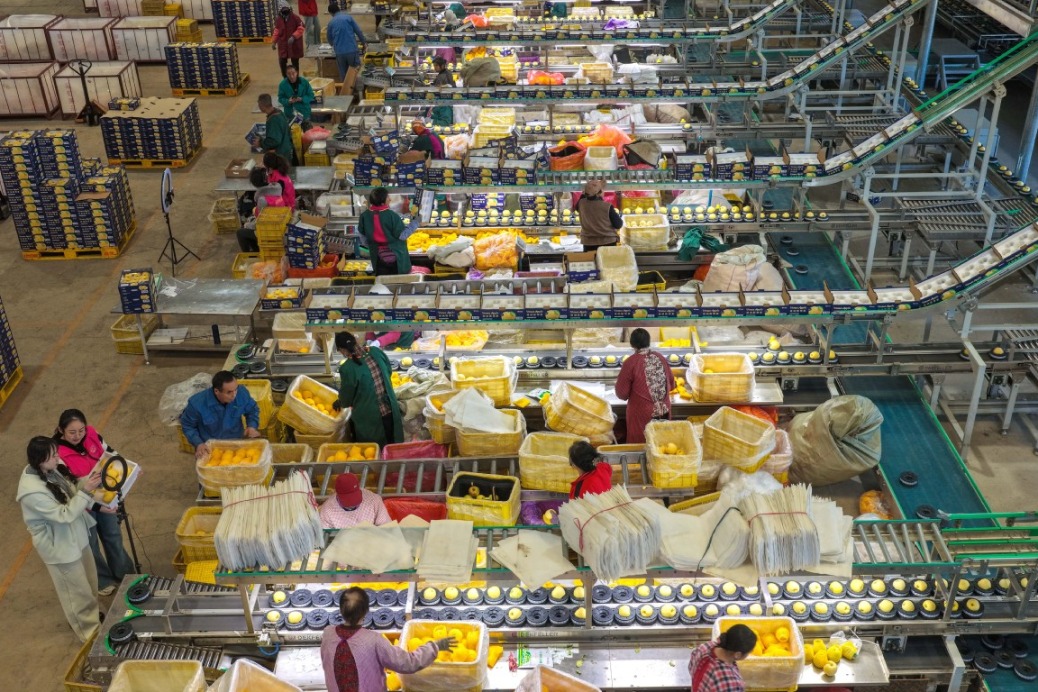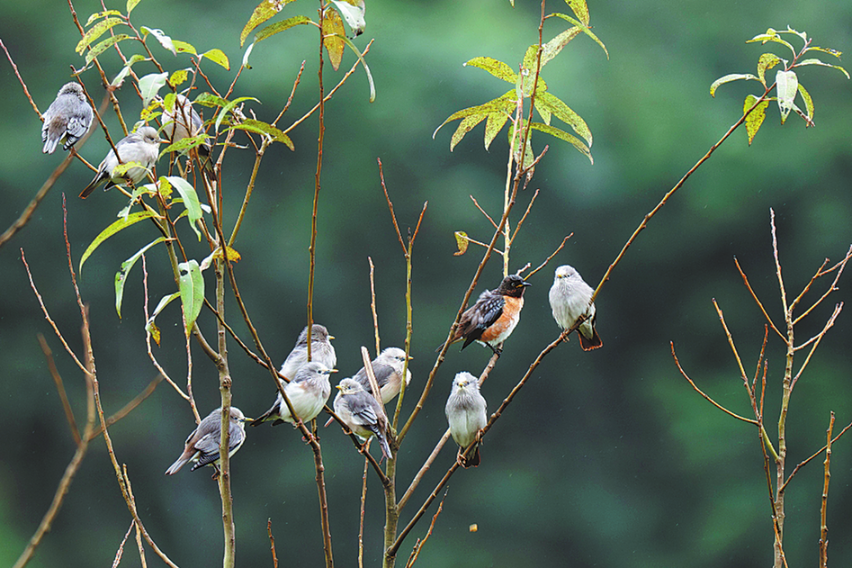Stories of High-Quality Development | Keeping the Taipu River crystal clear

Narrator: Shen Xiaohua, secretary of the general Party branch, Fenhuwan village in Lili town, Wujiang district, Suzhou, East China's Jiangsu province
The Taipu River, one of the largest artificial waterways in the Taihu Basin, connects the economically vibrant Jiangsu and Zhejiang provinces, and the city of Shanghai. Villages such as Fenhuwan in Jiangsu, Hubin in Zhejiang, and Xinchi in Shanghai lie along its banks.
I am the secretary of the general Party branch of Fenhuwan village in Lili town, Wujiang district, Suzhou, East China's Jiangsu province, and also serve as a joint river chief for the Taipu River. Having lived in Fenhuwan for over 40 years, I often stand by the riverbank, watching its clear waters flow eastward, birds soaring joyfully, and greenways stretching into the distance. Such beautiful scenery, however, has only graced us for about six or seven years.
This river was once heart-wracking. Back in the 1990s, there were 13 enterprises and workshops along the 1-kilometer riverfront in our village, and five of them were ship repair yards. Paint waste was washed directly into the river by the rain, while coal slag from steel rolling mills piled up on the banks. Shen Jianchun, Party secretary of neighboring Hubin village in Zhejiang across the river, was often bothered as water hyacinths blocked the river. With water hyacinths growing rampantly every year, cross-province cleanup efforts frequently led to disputes. How could neighboring villages maintain a good relation under such conditions?
The turning point came in 2018, when the integrated development of the Yangtze River Delta was elevated to a national strategy. Jiangsu, Zhejiang, and Shanghai joined forces to tackle Taipu River pollution through a "joint river chief system." Shen Jianchun from Hubin village in Zhejiang, Chi Jianfang from Xinchi village in Shanghai, and I became "cross-province partners," forming a "Party-led ecological circle."
Villagers witnessed the power of ecological protection for the first time. Within 11 months, all polluting enterprises and workshops were demolished, freeing up 68 mu (4.53 hectares) of waterfront land.
Some people worried about what would happen to economic development after shutting down those enterprises. I actually ran the numbers once. Shutting down polluting enterprises along the banks actually increased collective village revenue two to threefold. Relocated enterprises had no resentment—they were grateful for the compensation policies that helped them pivot to new technologies or industries, ultimately finding better paths forward.
Now, the favorite task for us three river chiefs is patrolling the river. As soon as we spot a water hyacinth blockage, we immediately divide tasks. A single message in our WeChat group summons cleaning teams from all three regions. What was once a neglected border river now sees coordinated action. Since we are all in one group chat, our relationships have got closer, barriers have been removed, and the feeling that the Yangtze River Delta is truly one family has become increasingly strong!
Fisherman Xu Chengxian left a deep impression on me. His family of nine had lived on boats for over 30 years, reluctant to move ashore due to different compensation standards between Jiangsu and Zhejiang. In the summer of 2021, the three neighboring villages at the Jiangsu-Zhejiang border made a joint decision: split the cost equally and compensate Xu at the highest standard. We also helped to relieve his worries about life after moving ashore. We arranged rental housing in Wujiang for his family, and gave him a job cleaning aquatic weeds. Now Xu and his brother work as river cleaners and do some aquaculture businesses. Whenever they see me, they will say: "Secretary Shen, life on land is much more stable than before!"
Today, the Taipu River has clear water and green banks. Over 200 enterprises are located in the area, and villagers "see greenery when they step outside, rivers when they open windows, and have jobs near home." The Taipu River has truly become a "river of happiness" across Jiangsu, Zhejiang, and Shanghai.
























